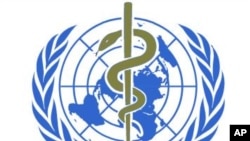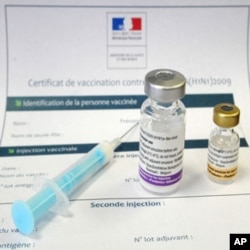The World Health Organization denies it is in collusion with the pharmaceutical industry. Recent media reports have raised concerns that ties between experts on WHO advisory bodies and drug companies may influence policy decisions, especially those relating to the H1N1 influenza pandemic.
The special adviser to WHO director-general on pandemic influenza, Keiji Fukuda, say potential conflicts of interest are inherent in any relationship between a health development agency, like the World Health Organization, and a profit-driven industry such as the pharmaceutical industry.
But he adds the agency has procedures for identifying and investigating potential conflicts of interest. He says external experts are excluded from participating in meetings if their impartiality is called into question.
He says the World Health Organization has historically collaborated with the pharmaceutical industry for legitimate reasons. He says this collaboration will continue because pharmaceutical companies have a unique and essential role in the vaccine manufacturing process.
"Most vaccine, which is available in the world for all diseases is not made by governments or in the public sector, but it is made by companies in the private sector." said Dr. Fukuda. "And, these companies are located both in the developed countries, but also in a number of developing countries. And, it is also this group, which has a really unique expertise and knowledge of vaccines and the manufacturing of the vaccines. It is essential for public health really to access this kind of knowledge and know-how if we are going to fully utilize and understand the products in the best possible way."
Latest World Health Organization figures show more than 7,800 people have died from H1N1 this year. The number of lab confirmed cases is more than 600,000.
The World Health Organization reports there are signs that disease activity has peaked in North America, the Caribbean Islands and a limited number of European countries. It finds influenza transmission remains active in East Asia and activity in India, Nepal and Sri Lanka has increased.
Dr. Fukuda says 150-million doses of H1N1 vaccine have been distributed in 40 countries. He says no unexpected safety issues have emerged.





